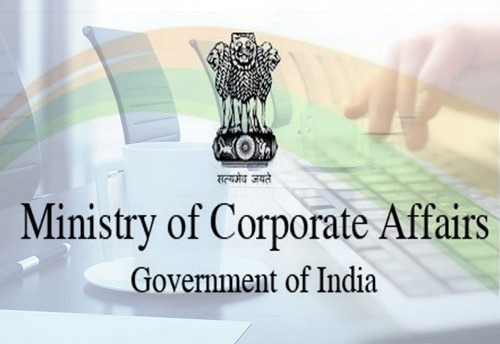@JUDGMENTTAG-ORDER
P.V. Dixit, C.J.@mdashBy this application under Articles 226 and 227 of the Constitution, the petitioner challenges the validity of the Madhya Pradesh Finance Act, 1933 (hereinafter referred to as the Act), and seeks writs of certiorari for quashing four notices of demand asking him to pay Rs. 41. 67, Rs. 100, Rs. 50 and again Rs. 50 as ''profession'' tax for the yea is 1957-58, 1958-68, 1961-62 and 1962-63 respectively.
2. Shri Choudhari, learned counsel appearing for the petitioner, while assailing the validity of the Act, submitted that the Act merely levied a profession-tax at the rates specified in the Schedule to the Act for each financial year on persons falling in the category mentioned in section 3 of the Act; that it did not contain any provision for determination and assessment of the tax; and that it did not provide for the lodging and hearing of objections by persons held to be liable to tax u/s 3 and did not also contain any provision with regard to appeals against the orders of assessment. Learned counsel mainly relied on the observations of the Supreme Court contained in paragraph-9 of the majority judgment in
3. This application is totally devoid of any substance and must be dismissed. The argument of the learned counsel attacking the validity of the Act is based on a misconception of the provisions of the Act and the Rules made thereunder. It is, therefore, necessary to examine the relevant provisions of the Act and the rules made thereunder entitled ''''Central Provinces and Berar Profession, Trade, Calling and Employment Taxation Rules, 1942" (hereinafter called the Rules). Section 3 is the charging section. It makes every person who carries on trade, either by himself or by an agent, or who follows a profession or calling, or who is in employment, liable to pay in each financial year a tax at the rate specified in the Schedule if the income of the person has been assessed to in come-tax under'' the Indian income tax Act, 1922. According to the Schedule, the tax payable is Rs. 100 where the total income is Rs. 15,000 or above; it is Rs. 50 when the total income is Rs. 10,000 or above, and Rs. 28 where the total income is less than Rs. 10,000. Section 7 lays down-
7. (1) Any officer empowered by the State Government to determine the liability of a person to pay the tax under this Act may, by written notice, require any person to attend before him and to give evidence or produce documents, as the case may be, for the purpose of determining any person''s liability to taxation u/s 3.
(2) *** *** ***
It will be seen that section 7 (1) indicates the authority competent to determine the liability of a person to pay tax under the Act and the procedure to be followed for determination of the liability. The argument, therefore, that the Act does not contain any provision for assessment and determination of tax is without any foundation.
4. Now, when we turn to the Rules, framed under the Act and which are a part of the Act itself, we find provisions for the lodging and hearing of objections preferred by a person held liable to tax u/s 3 of the Act. The material rules are rules 4, 6 and 7. Rule 4 provides that at the commencement of each financial year or at any time during the currency of the financial year, the taxing officer shall, for the area under his jurisdiction, determine the persons who are liable to pay the tax u/s 3 (1) of the Act, and shall cause to be prepared a list of such persons in the prescribed form. "Taxing Officer" has been defined by rule 2 (e) as meaning an officer empowered by an order of the State Government to determine the liability of persons to pay the tax for the area specified in the order. The list prepared under rule 4 has to be authenticated by the taxing officer as provided by rule 6. Rule 7 (1) enjoins that after authenticating the list under rule 6 (1), the taxing officer shall cause to be served on every assessee a notice informing him of his liability to pay the tax. In the case of assessees falling u/s 4, the notice is to be given in Form-B; in the ease of other assessees, the notice is given in Form-C. The impugned notices issued to the petitioner were in Form-C. Each of the notices, after stating the amount which the petitioner was liable to pay for the relevant financial year, informed him that if he wished to prefer an objection to the levy of the tax, he could apply to the taxing officer within the time and the manner laid down in rule 12. Now, rule 12 is as follows:
12. Any assessee who considers that he is not liable to pay the tax assessed shall apply in writing to the taxing officer to have the assessment modified or cancelled. The application shall be presented to the taxing officer or sent by post so as to reach him within thirty days from the date of service of the notice specified in rule 7.
If section 7 is read together with rules 7 and 12, then it is abundantly plain that a person, whose name has been included in the authenticated list of asseesees, is given the right to prefer objections to the assessment praying that the assessment be modified or cancelled, and the taxing officer, who is empowered to determine u/s 7 the liability of a person to pay the tax, is required to hear and decide the objections and then determine the liability. The petitioner''s objection that the Act does not make any provision enabling the persons affected to prefer objections to the assessment of tax and for the hearing of the objections, is thus altogether untenable.
5. It is also not correct to say that there is no provision for appeals or revisions against the orders of assessment. Sub-section (1) of section 9 distinctly says that any person, who has been informed of his liability to pay the tax under the Act or who is otherwise aggrieved by an order passed under the Act or the rules made thereunder, may, within thirty days from the date of the receipt by him of the information or the order, make an appeal to the authorities mentioned in clauses (a) and (b) of section 9 (1). The appellate authorities mentioned are the Deputy Commissioner and the Commissioner. Learned counsel suggested that as no Deputy Commissioner had been appointed, section 9 (1) was altogether ineffective. This argument overlooks the fact that the expression "Deputy Commissioner", as used in section 9 (1), means the Collector of the district. When the Act was enacted in 1938 the Revenue Officer in charge of a district was known in the Mahakoshal region as "Deputy Commissioner". By clause 4-A, added to the Madhya Pradesh Adaptation of Laws (State and Concurrent Subjects) Order, 1956 (published in the Gazette dated the 10th May 1957), the "Deputy Commissioner" is now renamed as ''Collector''. Sub-section (2) of section 9 provides that any person aggrieved by an order under sub-section (1) may within forty-five days from the date of the receipt by him of the order apply to the State Government, or to such authority as the Government may appoint in that behalf, for revision of the order. Rules 17 and 18 lay down the procedure for the filing of appeals and revisions and for their hearing. Thus it is idle to contend that a person, who has been held liable by the taxing officer to pay the tax, has no remedy of appeal or revision against the order of assessment.
6. Learned counsel pressed in aid of his argument the observations contained in paragraph 9 of the majority judgment in
7. In conclusion, the Madhya Pradesh Finance Act, 1938, is valid; so also the notices issued to the petitioner asking him to pay the amounts of profession-tax stated therein for the financial years 1957-58, 1958-59, 1961-62 and 1962-63. The result is that this petition is dismissed with costs. Counsel''s fee is fixed at Rs. 100. The outstanding amount of security deposit, if any after deduction of costs shall be refunded to the petitioner.

